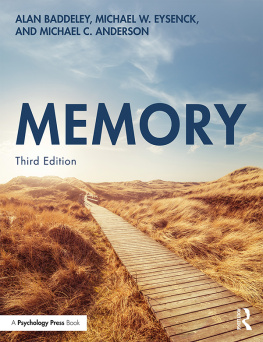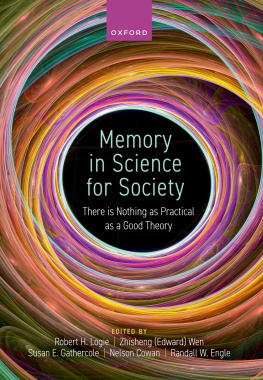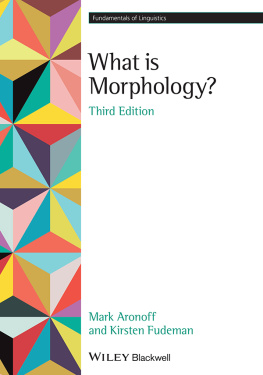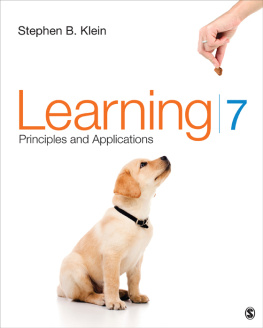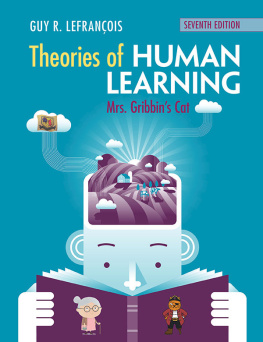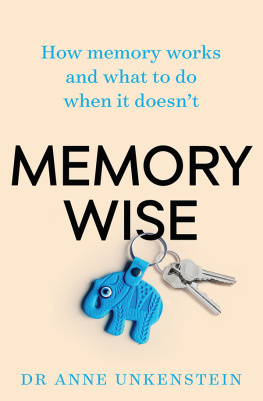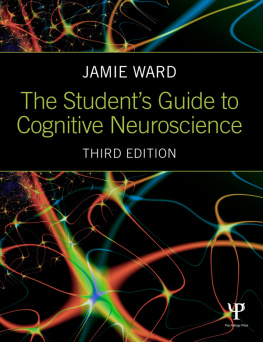Table of Contents
Guide
Print Page Numbers
MEMORY
The third edition of Memory provides students with the most comprehensive introduction to the study of human memory and its applications in the field. Written by three leading experts, this bestselling textbook delivers an authoritative and accessible overview of key topic areas.
Each chapter combines breadth of content coverage with a wealth of relevant practical examples, whilst the engaging writing style invites the reader to share the authors fascination with the exploration of memory through their individual areas of expertise. Across the text, the scientific theory is connected to a range of real-world questions and everyday human experiences. As a result, this edition of Memory is an essential resource for those interested in this important field and embarking on their studies in the subject.
Key features of this edition:
it is fully revised and updated to address the latest research, theories, and findings;
chapters on learning, organization, and autobiographical memory form a more integrated section on long-term memory and provide relevant links to neuroscience research;
it has new material addressing current research into visual short-term and working memory, and links to research on visual attention;
it includes content on the state-of-play on working memory training;
the chapter on memory across the lifespan strengthens the applied emphasis, including the effects of malnutrition in developing nations on cognition and memory.
The third edition is supported by a Companion Website providing a range of core resources for students and lecturers.
Alan Baddeley is Professor of Psychology at the University of York, UK.
Michael W. Eysenck is Professor Emeritus in Psychology and Honorary Fellow at Royal Holloway, University of London, UK. He is also a Professorial Fellow at the University of Roehampton, UK.
Michael C. Anderson is Senior Scientist and Programme Leader at the MRC Cognition and Brain Sciences Unit, University of Cambridge, UK.
MEMORY
Companion Website
The Companion Website provides a range of essential supporting resources for students and instructors.

Please visit www.routledge.com/cw/baddeley to access the Companion Website.
Student resources
Interactive exercises and simulations of key experiments
Multiple-choice questions
Fill in the blank quizzes
Glossary of key terms
Research activities based on classic research studies
Weblinks to further reading
Biographies of key researchers in the field of memory
Instructor resources
Testbank of multiple-choice questions
Figures from the book available in PowerPoint slides
Access to instructor resources is restricted to lecturers only by password protection. Instructor resources are free of charge to qualifying adopters.
MEMORY
THIRD EDITION
ALAN BADDELEY
MICHAEL W. EYSENCK
AND MICHAEL C. ANDERSON

Third edition published 2020
by Routledge
2 Park Square, Milton Park, Abingdon, Oxon, OX14 4RN
and by Routledge
52 Vanderbilt Avenue, New York, NY 10017
Routledge is an imprint of the Taylor & Francis Group, an informa business
2020 Alan Baddeley, Michael W. Eysenck, and Michael C. Anderson
The right of Alan Baddeley, Michael W. Eysenck, and Michael C. Anderson to be identified as authors of this work has been asserted by them in accordance with sections 77 and 78 of the Copyright, Designs and Patents Act 1988.
All rights reserved. No part of this book may be reprinted or reproduced or utilized in any form or by any electronic, mechanical, or other means, now known or hereafter invented, including photocopying and recording, or in any information storage or retrieval system, without permission in writing from the publishers.
Every effort has been made to contact copyright-holders. Please advise the publisher of any errors or omissions, and these will be corrected in subsequent editions.
Trademark notice: Product or corporate names may be trademarks or registered trademarks, and are used only for identification and explanation without intent to infringe.
First edition published by Psychology Press 2009
Second edition published by Psychology Press 2015
British Library Cataloguing-in-Publication Data
A catalogue record for this book is available from the British Library
Library of Congress Cataloging-in-Publication Data
A catalog record has been requested for this book
ISBN: 978-1-138-32607-1 (hbk)
ISBN: 978-1-138-32609-5 (pbk)
ISBN: 978-0-429-44964-2 (ebk)
Typeset in Sabon and Gill Sans
by Wearset Ltd, Boldon, Tyne and Wear
Visit the companion website: www.routledge.com/cw/baddeley
For HilaryAlan Baddeley
To Christine with loveMichael W. Eysenck
To Max, whose toddlerhood I hope always to rememberMichael C. Anderson
CONTENTS
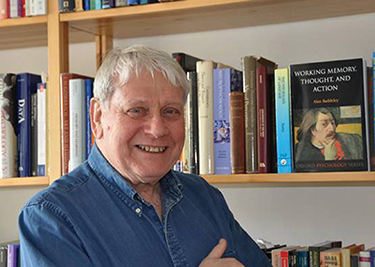
A s described in his recent memoirs, Working Memories: Postmen, Divers and the Cognitive Revolution, Alan Baddeley graduated in Psychology from University College London. He spent the following year in Princeton, the first of five such stays in the US. He returned to a post at the Medical Research Council Applied Psychology Unit (APU) in Cambridge, completing a Ph.D. concerned with the design of postal codes. He continued to combine applied research, for example on deep-sea diving, with theoretical issues such as the distinction between long- and short-term memory. After moving to the University of Sussex, he and Graham Hitch proposed a multicomponent model of working memory. He also began working with amnesic patients, continuing both these lines of research when he moved, first to a chair at the University of Stirling, then returning to the APU in Cambridge. After 20 years as its director, he moved first to the University of Bristol, then to his current position in York where he has resumed his collaboration with Graham Hitch. He was awarded a CBE for his contributions to the study of memory, is a Fellow of the Royal Society, the British Academy, the Academy of Medical Sciences, and the American Academy of Arts and Sciences.
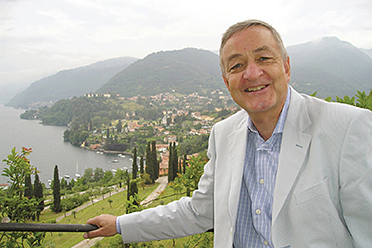
M ichael W. Eysenck graduated from University College London. He then moved immediately to Birkbeck University of London as a lecturer, where he completed his Ph.D. on the von Restorff and release memory effects. His research for several years focused on various topics within memory research (e.g., levels of processing; distinctiveness). However, for many years his research has focused mainly on anxiety and cognition (including memory). Most of this research has involved healthy populations but some has dealt with cognitive biases (including memory ones) in anxious patients. This research has been carried out at Birkbeck University of London and at Royal Holloway University of London, where he has been Professor of Psychology since 1987 (Head of Department, 19872005). However, it was started during his time as Visiting Professor at the University of South Florida. He has published 40 books in psychology (many relating to human memory), including two research monographs on anxiety and cognition. He has been in

